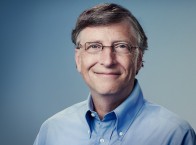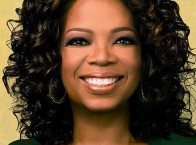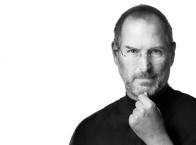Over the past few years, the world has witnessed a remarkable change in how Charlamagne Tha God navigates his universe. After years of battling with anxiety and depression, the media mogul seems to be transitioning from what he calls "survival mode" to embracing his real authentic self.
Early Life
Brought up in Moncks Corner, South Carolina, Charlamagne spent his early years caught up in the complexities of an impoverished neighborhood. While his mother was an English teacher and had instilled a love for literature in her son, Charlamagne was more interested in pursuing a sense of belonging, something that would introduce him to negative influences.
Disciplinary problems at school soon turned into regular run-ins with the law and he was arrested twice for possession. Charlamagne's father - who was well aware of the dangers of this path - pleaded with his son to get his act straight. It wasn't until Charlamagne was arrested for the third time that his father refused to post bail. Left in a cell to reflect on his life he witnessed a first-hand account of the consequences of his chosen path. He understood that by continuing down this path, he would either get killed or be locked up for life. Invigorated by this newfound realization, he immediately set his mind towards working and finishing his degree.
While growing up surrounded by poverty, gang activity, and criminal behavior was difficult, such experiences also led to him becoming more resilient and resourceful. After graduating high school, Charlamagne turned his gaze towards the media industry as a means to explore his future. Landing an internship at a local radio station, z93 Jamz, Charlamagne set off on a journey that would lead to his true calling.
Financial Success
With some experience under his belt, he soon landed the chance of a lifetime. Radio host, Wendy Williams invited him to join her as a sidekick on her show, 'The Wendy Williams Experience'. This short stint with one of the industry's finest tacticians catapulted him to new heights. However, it was his next stop that led him to become co-host of the world's most popular morning show, 'The Breakfast Club." The syndicated radio show, which was also inducted into the Radio Hall of Fame, has been the backbone of Charlamagne's thriving media empire.
While Charlamagne's financial success and growing platform led to monumental changes in his life, there was one dilemma that remained unsolved - his deteriorating mental health. From a young age, Charlamagne had struggled with debilitating bouts of anxiety and panic attacks. Unaware that mental health conditions like anxiety existed, he regularly turned up at hospitals fearing a heart attack. However, it was one visit to the hospital in 2010 that changed everything. "So after I got fired from the radio for the fourth time and I'm back home living with my mom, I had one of those moments where I was feeling like I was having, like, a massive heart attack again," he said. "I pulled over to the side of the road, drank some water, and told God - God, I'm going to go to the doctor tomorrow. Went to the doctor. Doctor's like, your heart is perfectly fine, which I've heard a million times, you know?"
"But this is the first time somebody said to me, do you have anxiety? 'Cause, it sounds like you had a panic attack. And I was like, oh, no, not that I know of. And he was like, are you stressed out about anything? I'm like, hell yeah!"
The Importance of Therapy, Meditation, and Mindfulness
Charlamagne's initially believed that the everyday stressors of life were the cause of his anxiety. But later, he realized that no amount of success had a positive effect on his mental health. Unaware of what to do, Charlamagne began speaking up about his experiences and was met with a remarkable response. People began sharing their own experiences and friends in the industry like Pete Davidson and Amanda Teal began talking about the wonders of therapy and exercises such as meditation and mindfulness.
Charlamagne has often acknowledged the importance of therapy in helping him manage his anxiety. He credits regular sessions with a therapist for helping him peel back the layers of his life and learning how traumatic experiences from his life shaped his personality. His early childhood experiences and survival instincts had forced him to create a persona that was tough, wary, and on edge, whereas his authentic self was kind, compassionate, and capable of showing vulnerability.
Among other tools that helped him manage his anxiety, Charlamagne swears by the practice of meditation. In an interview with VeryWellMind, he said, "Meditation was something that I never could do. I could never quiet my brain enough to actually get into meditation, but I got into it at the end of 2020...I think with the pandemic, just being at home, and being forced to be still, helped a lot of us to understand what quiet time really looks like and what peace really looks like."
There are also several other practices that Charlamagne endorses as excellent resources for improving one's mental health. Mindfulness - which is the practice of gently focusing your awareness on the present moment over and over again, is something that has helped Charlamagne in reducing symptoms of stress, anxiety, and depression as well as increasing his overall sense of well-being.
Charlamagne also promotes being in physical contact with nature. He says, "I love grounding. I love when it's summertime and I can take my shoes off and go walk barefoot in my yard. As crazy as it sounds...I am, literally, outside, hugging a tree, putting my forehead to it, sitting down next to it, laying on my back against it, putting my head against it, all of that. It makes me feel better and it gets me back to a good place."
Because Charlamagne's mental health has seen significant levels of improvement over the past few years, he now looks to promote the same change in underserved Black communities in America. With foundations such as the Mental Wealth Alliance, Charlamagne has worked towards destigmatizing and accelerating mental health outreach in America. "We want to provide free therapy services to more than 10 million Black Americans over the next five years. And, we plan to do that through raising money," he said. "We want to train the next generation of psychiatrists [and] therapists, we want to be able to provide them with scholarships and money to where they can get their certification, especially Black and brown people."

 Share on Facebook
Share on Facebook





















